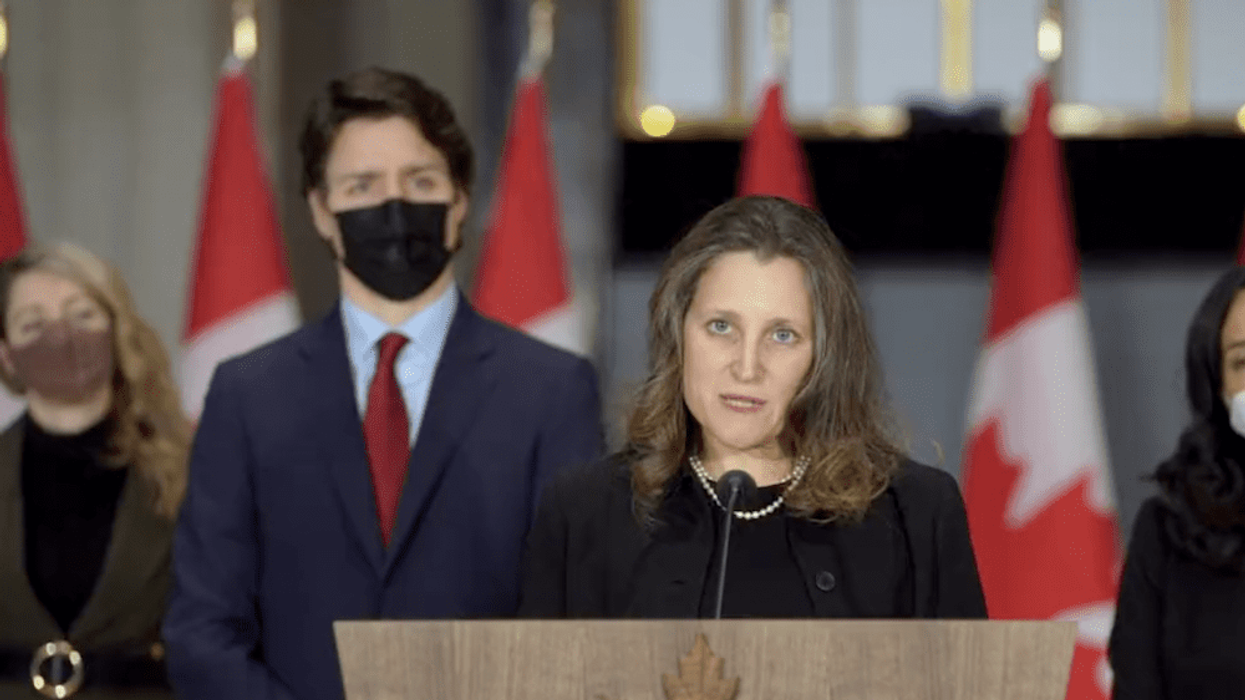With the federal government set to unveil their 2022 budget this week amidst a Canada-wide housing crisis, all eyes are on how the Liberals will address skyrocketing home prices.
Finance Minister Chrystia Freeland will release the federal budget on April 7, marking the first budget released by the Liberals since the party's reelection last year. Although not the only issue that's expected to influence Thursday's announcement, housing affordability will likely be at the forefront of the government's budget distribution.
With a number of Liberal campaign promises addressing housing affordability and shortages, as well at the recent federal Liberal-NDP agreement prioritizing several housing initiatives, a preliminary view can be garnered of what to expect come Thursday.
Here's what's on the table for housing initiatives to be included in the federal budget.
An Expansion of the Rapid Housing Initiative
Among the list of shared Liberal-NDP priorities released as part of their recent governance deal is a one-year extension of the Rapid Housing Initiative (RHI), a federal program that provides capital contributions to expedite the delivery of affordable housing. A recent report from the National Housing Council found that the RHI is the only federal affordable housing program that appears likely to produce rents that will meet the needs of low-income households. The extension would require additional funding, which is expected to be laid out on Thursday.
That same report found that the Rental Construction Financing (RCF) Initiative, which is responsible for the bulk of federally funded “affordable” rental units, “regularly produces units with rents well in excess of average market rent in their areas.” As part of their deal, the two federal parties will re-focus the RCF Initiative on affordable units under 80% average market rent (AMR) and will use 80% AMR or below as the new definition of affordable housing under this program. With the RCF program continuing, albeit under new affordable housing guidelines, funding for it in the federal budget would be expected.
Canada Housing Benefit Top Up
The list of NDP-Liberal priorities also called for a $500 one-time top-up to the Canada Housing Benefit in 2022 that could be renewed each year “if cost of living challenges remain.” This benefit is provided to households across Canada to assist with rental costs in the private housing market.
Establishing A Housing Accelerator Fund
Limited housing inventory has plagued markets all across Canada over the past two years, significantly contributing to rapidly rising prices. Another of the NDP-Liberal priorities aims to address this by establishing a Housing Accelerator Fund. The fund was first proposed as part of the Liberal’s housing plan, and would require the investment of $4B to grow the annual housing supply in the country’s largest cities every year, with a target of creating 100,000 new middle-class homes by 2024-2025.
First-Time Buyer Support
Just last month, senior members of Mortgage Professional Canada (MPC), representing over 12,000 brokers, lenders, and insurers, met with key policy makers in Ottawa, advocating for policy changes that would make it easier to enter the housing market. With there being low uptake on the First-Time Home Buyer Incentive -- a program that gives the federal government shared equity in a buyer's home in exchange for a 5-10% down payment boost -- MPC is recommending instead that the government introduce a 30-year insurable amortization instead. Changes to the mortgage stress test have also been advised, with MPC criticizing it as too restrictive.
In the Liberal's 2021 platform, they called for a doubling of the First-Time Home Buyer's Tax Credit, raising it from $5,000 to $10,000, as well as the creation of the First Home Savings Account. The savings account would allow tax-free contributions and withdrawals up to $40,000 for Canadians under 40.
Higher Mortgage Payments For for Investors
Speculative real estate has been a target of recent housing discourse, with rumours circulating among mortgage professionals that Canada's finance policy makers are considering significant changes to borrowing criteria on investment properties. One such possible change is raising the minimum down payment to 35%, up from the current 20% required for non-owner occupied properties. Another rumoured consideration is banning the use of a Home Equity Line of Credit as a down payment source in addition to borrowed or gifted funds.





















